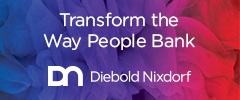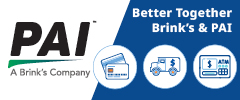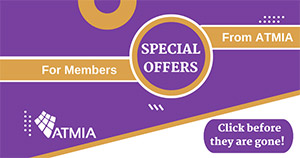
Stars aligned: 4 reasons why cash could grow
Wednesday, August 17, 2016
View Showroom
By Daryl Cornell, CEO, Triton Systems on ATMmarketplace.com
So let me get this straight, you have to pay your bank to hold your money? Yes, you do. That is, if you live in Denmark, Japan, Sweden or Switzerland.
In a development few could have predicted, interest rates in many countries have turned negative. This means that rather than paying interest on depositors' savings, banks are actually taking money from depositors each month!
Central banks in many countries have reduced interest rates into negative territory in an attempt to stimulate the economy and increase inflation. They want banks to lend more and people to spend rather than save.
The jury is still out on whether negative interest rates will accomplish these results. What is not in doubt is that retirees, savers and even banks in affected markets are being punished by negative interest rates and that the use of cash in these markets is growing.
In the U.S., interest rates on deposits are already well below 1 percent, meaning that customers are essentially letting banks use their money for free. Consumers also know intuitively that if inflation is running at 1-2 percent, real interest rates are already negative.
So what would happen if nominal U.S. rates were to actually turn negative? What would be the ramifications if even a modest percentage of the estimated $11 trillion in U.S. bank deposits were to move away from these institutions?
A quick glance around the world tells us four important facts about the possible future of cash demand:
1) Negative interests rates foster a false impression that banks are less safe
Many people assume that if banks take interest from borrowers rather than paying it, they must be less stable. Rumors of widespread bank insolvencies Italy and deposit confiscations in Cyprus have done nothing to assuage global concerns about banks.
When consumers decide that the risk of depositing funds in banks outstrips the rewards of security and return on investment, they will find alternatives, including holding cash.
To be clear, we have yet to see any indication of depositors headed for the exits but if they do, the demand for cash could surge.
2) The cost of holding cash is very, very low
Near-zero or negative rates mean that cash holders are not foregoing a return on investment in order to hold cash.
In Japan and other negative interest rate economies, sales of home safes have outstripped supply as consumers balk at leaving cash in the bank at negative interest rates. Presumably, these safes are being filled with physical cash.
In the U.S., a 10 percent reduction in the amount of total bank deposits would result in demand for more than $1 trillion in additional cash. With a demise of disincentives for stuffing banknotes in the mattress, watch for a spike in the demand for cash.
3) EMV hiccups could drive an increase in cash use
Anyone who has followed the rollout of EMV in the U.S. knows that the results to date have been less than stellar.
Despite the October POS liability shift, issuers are still in the process of changing to EMV cards, and most merchants still haven't upgraded their POS terminals to EMV.
Of those merchants who have upgraded, many haven't activated their terminals due to processor certification delays, manufacturer issues or just plain slow performance.
In a little more than a year, the EMV liability shift for gas pumps will take place. Industry estimates are that 50 percent of all gas pumps are in single-location stores, many of which will require wholesale pump replacement for EMV.
Given the short remaining time and the prohibitive cost of fuel island replacement, there is a fair chance that a large number of gas stations might have to abandon "pay at the pump" for the foreseeable future, further increasing the demand for cash.
4) People simply like cash
Cash remains convenient, anonymous, and a reliable store of value. Cash convenience is generally understood to mean that cash is nearly universally accepted for the purchase of goods and services.
Cash anonymity shields consumers who, for whatever reason, wish to avoid any financial record of a transaction.
Cash as a store of value replaces bank deposits, certificates of deposit, money market accounts and other investments in times of negative interest rates, political unrest, war or financial crises.
Customers around the world have consistently stated that they want a variety of payment options, including cash.
All of this is to say that while the growth of cash has stalled at 1-2 percent per year and rumors of its death persist, the stars may be in alignment for a near-term explosion in the demand for cash.
This article was republished, with permission, from the Triton blog, atmAToM.
illustration istock
Additional Resources from ATM Industry Association
- 5/1/2024 - ATMIA: The Best of April
- 4/30/2024 - Less Impressed, More Involved
- 4/26/2024 - Time to Take Action! Support the Crime Bill - We Need You!
- 4/23/2024 - ATMIA Unveils Strategic Collaboration with Reconnaissance International to Elevate Intelligence & Networking Services to the ATM & Currency Industries
- 4/21/2024 - Fight Against Cashless Economy:
- Show All ATM Industry Association Press Releases / Blog Posts



























